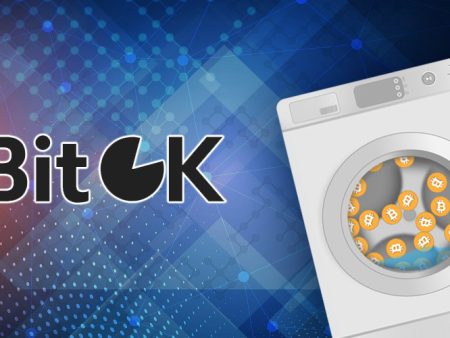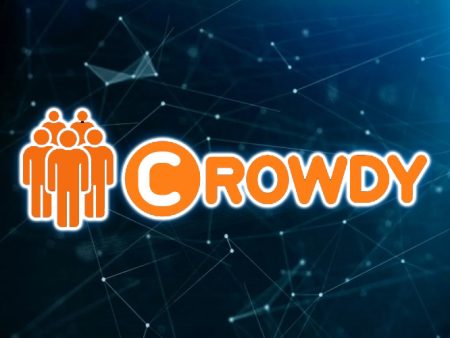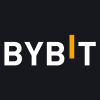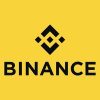
The term cryptocurrency combines the following concepts: blockchain, matching protocol, different types of Knudepunkter or nodes and their interaction in a peer-to-peer network. It is difficult for a person who is not a programmer to imagine the whole architecture of digital money. Therefore, it is a common belief that it is very difficult to create a token. However, this is not entirely true, as much is decided by the method chosen to develop a new cryptocurrency. First, it is worth clearly distinguishing between the concepts of token and koin. Both types of assets belong to coins, but they have different purposes.
Hvad er et token?
The name comes from the English token (sign, symbol, token). Token is a digital asset, for the development of which the blockchain of an already existing cryptocurrency was used. This is the main difference from Coin – its distributed ledger was created from scratch.
In other words, Coin is a means of payment with intrinsic value that can be realized outside the system. Tokens fulfill a similar function inside the project. They are used to pay for services, goods, and discounts.
The following types of tokens are distinguished:
- Security – a close analog of company shares or investment investments. Security tokens give holders the right to receive dividends from the issuing firm.
- Utility – a tool for conducting operations within the system. Gives access to services and services of the platform. A good example would be gaming currency.
- NFT – Non-exchangeable units are used to tokenize unique assets. For example, paintings, collections, patent authorizations, etc.
- Governance – governance tokens. From the name it is clear that such assets give their holders the right to vote on the development of the project.
- Asset-backed – a type of digital currency, the price of which is backed by a real-world asset. Companies issuing such coins guarantee their holder an exchange for a specific good or service.
How to create a token depending on the network
The emergence of cryptocurrency has brought a lot of attention to Blockchain technology itself. The fields of application of the distributed ledger are increasing every year, and this applies not only to the financial sphere, but also to logistics, entertainment industry, ridesharing, copyright, etc. This situation has led to a significant demand for platforms that can be used to develop and launch new coins and cryptosystems.
When choosing a network to create tokens, there are a number of important factors to consider:
5020 $
Bonus til nye brugere!
ByBit giver bekvemme og sikre betingelser for handel med kryptovaluta, tilbyder lave provisioner, højt likviditetsniveau og moderne værktøjer til markedsanalyse. Den understøtter spot- og gearet handel og hjælper begyndere og professionelle handlere med en intuitiv grænseflade og vejledninger.
Optjen en 100 $-bonus
for nye brugere!
Den største kryptobørs, hvor du hurtigt og sikkert kan starte din rejse i kryptovalutaernes verden. Platformen tilbyder hundredvis af populære aktiver, lave provisioner og avancerede værktøjer til handel og investering. Nem registrering, høj transaktionshastighed og pålidelig beskyttelse af midler gør Binance til et godt valg for handlere på alle niveauer!
- The consensus algorithm in the blockchain.
- The programming language.
- The type of platform.
- The launch price of the new digital asset.
- The activity of the community.
- The popularity of the network.
The table summarizes common systems for developing a new crypto and the differences between them.
| Network for token creation | Settings in the command line | Working with smart contract code | Commission for issuing a coin |
|---|---|---|---|
| Ethereum | Yes | Need | 320 thousand GAS |
| EOS | Yes | Optional | Buy RAM from miners |
| TRON | Not always | Not always, depends on standard | 1024 TRX |
| Enecuum | Nej | Nej | 1000 ENQ |
Ethereum
Etherium is a popular platform that allows you to create your own token. Almost 90% of new tokens are issued on it.
The architecture of Ethereum is designed so that users who do not know the program language Solidity (designed for writing smarte kontrakter) can easily launch new crypto coins on their own. The Ethereum blockchain is a kind of virtual constructor, where you can set the necessary parameters for a token. It is enough to make small changes to the code of the smart contract. At the same time, the entire process takes no more than 20 minutes.
Technical features
In the Ethereum system, you can tokenize any assets that have value. Examples: lottery tickets, company shares, loyalty points, etc.
To accommodate the requests of users and developers, Ethereum offers ready-made templates (standards) for creating tokens – ERC (Ethereum Request for Comments). There are several such protocols. They differ from each other by the numerical index on the right:
- ERC-20 – a unified standard designed for better interaction between smart contracts, ETH wallets and cryptocurrency exchanges.
- ERC-721 – used to issue irreplaceable tokens. Each coin created on the basis of such a protocol is unique.
- ERC-1155 – a standard for combining transactions of different assets. It appeared in June 2018. With its help, it is possible to transfer both interchangeable and indivisible tokens in one transaction.
- ERC-777 – the protocol is fully compatible with ERC-20. The difference is that the mechanism of transfer and exchange of assets within the system has been improved. This leads to a decrease in transaction fees and an increase in the speed of transactions.
- ERC-1400 is a standard for security tokens.
These are only a small part of the protocols developed on the Etherium platform. Some standards are often used in the cryptocurrency industry, while others are still in the testing phase. As of September 2021, the most utility assets have been issued using ERC-20.
Choosing a utility
To create your own cryptocurrency based on the Ethereum platform, you can use ready-made frameworks developed by independent community programmers. Utilities provide a set of tools with which even a beginner can cope with the launch of cryptomoney. Applications of this type include:
- Truffle.
- Remix.
- Embark.
- Dapple.
For those who are just trying their hand at creating cryptocurrency, the Remix editor will do. It does not require installation on the PC (it works directly in the browser), and also allows you to track errors made in the process of setting the parameters of a new token.
To use this utility, you need to register an account in the MetaMask application (a browser extension for working in the Ethereum network with cryptocurrency wallet functions).
Downloading the source code
Ethereum is an open source platform. All source data and documentation are freely available. Creating a coin starts by visiting the GitHub website. Here you can freely download the source code of the smart contract with the parameters of the future crypto. These are 2 files with the extension .sol, which are available for free. Thus, you can get the basic code that was used in the development of Ether.
If it is necessary to take as a basis the smart contract of a certain coin, then the user needs to go to the Etherscan website. In the Verified Contracts section, one should select the desired option and manually copy the code.
Token data
To make the new cryptocurrency different from the main cryptocurrency, you need to enter the following information:
- Name – the proper name of the token.
- Symbol (ticker) – the abbreviated name of the digital asset. For example, BTC for Bitcoin or ETC for Efirium Classic. Any number of letters and numbers can be used.
- Total supply – determines how many coins will be issued.
- Decimals – the number of decimal places or the value of the split. This is to allow for the transfer or receipt of non-integer quantities of coins. Example: $1.26 in a smart contract will be represented as 126 cents because the Efirium blockchain only uses non-fractional numbers.
Token Deployment
Once the code of the underlying smart contract has been modified to define the properties of the new coin, you need to “deposit” it into the blockchain. This procedure is paid and will require a commission in the form of Ether.
If the whole operation was conducted for the purpose of familiarization and training, it is not necessary to deploy the smart contract in the real Efirium blockchain.
You can use the ropsten test network – it’s free.
In the Remix editor, you can use the required interface function (click the corresponding button) to deploy. In other utilities, this will have to be done manually via the command line.
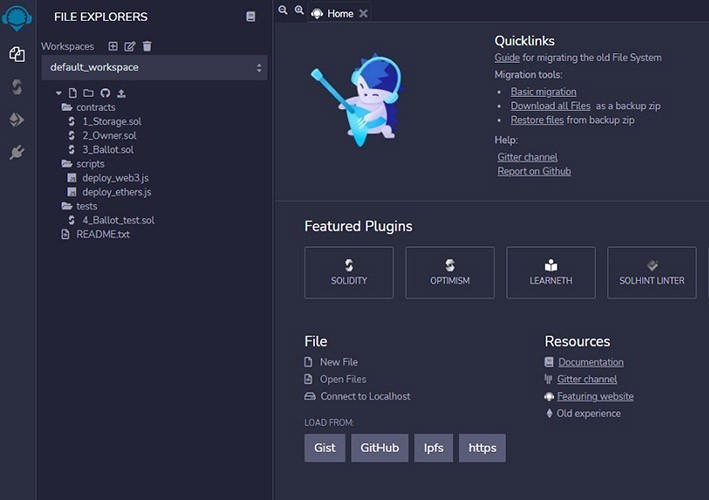
EOS
To launch a new cryptocurrency based on the EOS blockchain, you need to perform the following points:
- Install the EOS Cleos utility on your PC via the console.
- On the eosx io website, purchase RAM (to support the transaction network).
- Develop the smart contract code. You can use the EZEOS application (download from GitHub).
- Publish the smart contract through EOS Cleos.
TRON
Creating a token based on the TRON platform is also not a big problem. Everything can be done online on the Tronscan website. The algorithm of actions looks like this:
- After authorization on the site, you need to choose a standard. In September 2021, there are 3 options: TRC-10 (standard), TRC-20 (custom) and TRC-721 (to issue unique coins similar to Ether).
- Enter all data and confirm token creation.
- If TRC-10 is used, the information will be automatically entered into the smart contract template and published to the TRON network blockchain. For TRC-20 and TRC-721, you need to insert the code into the form and approve.
- When using the TRC-10 standard, 1024 TRX will be debited from the wallet account (must be purchased in advance from the exchange). If the smart contract is developed by the creator himself (in the TronBox environment), there will be no charge.
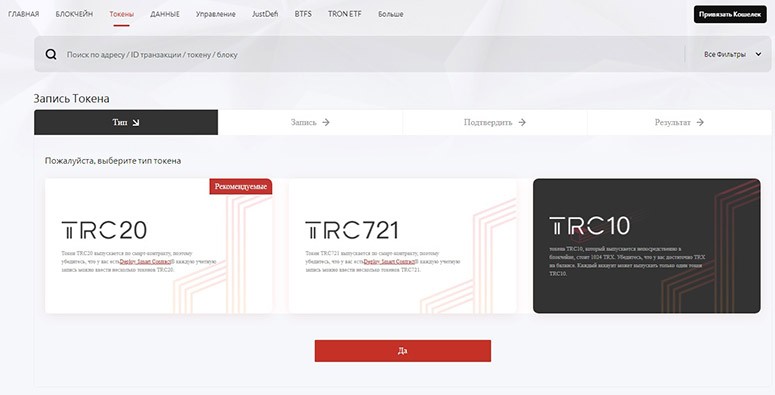
Enecuum
At the end of 2019, a new crypto project was launched. It differed from similar startups by its special distributed ledger structure, which involved the use of mobile masternodes and branched blockchain technology (HyperDAG).
Separate chains of blocks (branches) form a common blockchain. This solution allows to increase the throughput of the system. During the tests, the speed of transactions reached 18 thousand per second.
Smart contract
The Enecuum network has introduced a new smart contract – SHARNELL – for the development of custom coins. It is based on the principles of linear logic and a set of simple operations. Developers point out such advantages of this standard:
- The creator of the cryptocurrency does not change the code of the smart contract, therefore, there is no possibility of a vulnerability.
- Before a coin is deposited, it is checked by auditors for security.
- Due to its simplicity, errors in the structure of the new digital currency can be detected at the compilation stage.
Commission
In cryptocurrencies that have a Minedrift feature, transaction fees are paid by the underlying coin to provide remuneration to miners. The Enecuum platform has adopted its charging rules for asset transfers:
- For an ENQ transaction, the user pays 0.1 coins to the system developers.
- When a new token is issued, the issuer is charged a fee of 1000 ENQ. It goes to the miners for processing transactions.
- When transferring a token, its creator is paid. He can set the size of the commission and its type (fixed or percentage).
- With each transaction of a user token, its issuer pays 0.1 ENQ to the Enecuum network.
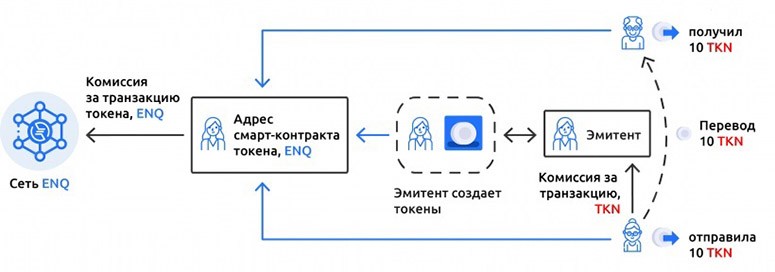
Consensus protocol
The developers combined three algorithms into one and called it Trinity.
- Proof of Activity (PoA) – smartphones and mobile devices. Verify random transfers and collect microblocks.
- Share Confirmation (PoS) – wallets of the largest coin holders. Approve transactions in microblocks and build macroblocks from them.
- Proof of Work (PoW) – PCs and servers. Approve the macroblock and add it to the blockchain.
This hybrid consensus protocol allows ENQ to be mined on smartphones.
What tokens can be issued
With Enecuum, it is possible to create:
- Interchangeable tokens. Can be mineable, with limited issuance and with the ability to permanently issue or burn coins.
- Unique. Designed for tokenization of single assets (gift certificates, cultural property identifiers, and more). They act similarly to ERC721 of Etherium.
The creator of the cryptocurrency himself customizes the necessary parameters: the possibility of mining and interchangeability.
Example of creation
The Enecuum platform offers good conditions for a user or a company to create a token. The entire process takes place on the project’s website and takes only 3 minutes. As of September 2021, only a test network is available, but the developers claim that such a function will appear in the main system in the near future.
Step-by-step algorithm:
- Go to the Bit Enecuum project website, click on the “Wallet” button and register. To have permanent access to the account, you need to save the private key and public address.
- Through the “Get Coins” section, order 25 BIT (the system’s internal currency) to your account. You can receive it every 10 minutes.
- Return to the wallet and click “Create token”. In the form that opens, fill in the necessary parameters: name, ticker, number of coins and commission. Confirm the actions.
- Check the “Blockchain Overview” section and find your token, provided everything is done correctly. The new cryptocurrency has been created.
Such an operation can be carried out using a mobile application, the link to which is located on the same site.
Where to store and how to transfer the created token
All platforms with the function to deploy their own cryptocurrency have native wallets for storing both the main coin and the user token. There are also a number of multi-currency services where you can hold your new crypto. For example, Trustee Wallet, to which it is easy to add any token of the ERC-20 standard. Once the desired coin appears on the wallet’s list, it can be transferred to another address. The same option is available on the Etherscan io website or in the Remix editor.
Konklusion
According to the CoinMarketCap website, as of September 19, 6,900 cryptocurrencies are available for trading, and the number is constantly growing. On the technical side, creating a token is a relatively simple operation. You don’t need to be a programmer or blockchain developer to carry it out.
The main difficulty is to make the new cryptocurrency in demand and gain value for other users. For this purpose, it is necessary to form a community, develop infrastructure and engage in advertising. Although with the right organization and community support, even joke meme-coins can become a real financial asset.
Ofte stillede spørgsmål
💰 On which blockchain can I issue a free custom token?
The major platforms that offer to create your own cryptocurrency take a commission. The percentages depend on the size of the smart contract code, the popularity of the network or other factors.
❓ How many ERC standards does Etherium have?
A great many. The smart contract code is open, anyone can make a change. If it is approved by the community, such a standard will get support. You can find out more information at eips.ethereum.
🖥 What is better when issuing your own tokens – to use an application or to write the smart contract code yourself?
Depends on the capabilities and knowledge of the coin creator. Own smart contract will make the new cryptocurrency more independent from the source. An app is much more convenient to use.
🎲 How to mine coins on the Enecuum platform?
You need to install 2 applications on your mobile device: wallet and full node, you should have ENQ coins (25 or more) on your balance.
🏛 Which platform is better to create your tokens on?
The most popular network is Ethereum, it produces the most new coins.
Er der en fejl i teksten? Fremhæv den med musen, og tryk på Ctrl + Indtast
Forfatter: Saifedean Ammousen ekspert i kryptovaluta-økonomi.


